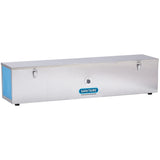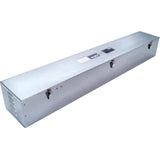How Coronavirus is Affecting the Lighting Industry
Posted by Nick on for ProLampSales

Since its outbreak in December 2019 in Wuhan, China, coronavirus has become increasingly concerning. The spread of the virus has had a number of effects on the lighting industry.
Much of the lighting industry is located in China. A great amount traditional lighting is now manufactured there, and many LED companies manufacture their products in Chinese plants.
Longer Lead Times for Light Fixtures & Bulbs
For lighting designers and installers around the globe, the fact that LED and traditional lighting production has ground to a halt has been a challenge. Lead times have increased from 30 days to over 60 for some manufacturers we work with, although that number has gone down recently.
Philips Lighting/Signify has a number of employees in China in the affected zones. These people have not returned to work as of early February, and Philips has provided them with protective equipment.
We know exactly where all our people are located. Most of them are still at home. They are being reached individually on a daily basis. They were sent some protective equipment, masks, with very — with different grades of filtering. They were also sent some soap and gel for their hands, for them and their families. And we are very happy to report at this point in time that we have not recorded any case of infection.
Lower Production, Lower Profits
Profits are also expected to decrease for Chinese LED companies. According to an industry survey by LEDInside, 72% of Chinese LED manufacturers are not expecting to make a profit due to the coronavirus outbreak.
The next few weeks could make or break some companies, as they can handle one or two weeks of being closed. However, as closures extend due to quarantine, these companies have face labor shortages that last into next month or longer.
Also, according to the same article, "Small and middle size factories are most likely to be significantly impacted by the novel coronavirus outbreak especially when it comes to delay in production."
Related Industries Also Affected
For industries that require specialized lighting, the slowed production could also lead to stagnation or financial loss. For example, horticulture lighting is a huge and growing industry, but many LED and traditional plant lights are manufactured in China. And unfortunately, without proper lighting, harvests can be severely impacted.
Similarly, the display industry could face major impacts from the coronavirus outbreak. LCD screens and projectors, LED and laser projectors, and all manner of electronics are produced in China. If employees of these companies can't make it to work, production will necessarily slow.
Rising Interest in Germicidal Ultraviolet Disinfection
On the other hand, this outbreak and the concern it is causing throughout the world has given a boost to the ultraviolet germicidal lighting market. At least one UV-C equipment manufacturer we work with is based in the United States, and interest in disinfecting products has increased.
Coronavirus can be spread through respiratory droplets and surfaces. Air disinfecting systems can work on deactivating harmful viruses, bacteria, mold, and fungus. There is currently no definitive data on how long the coronavirus can survive on surfaces, so proper disinfection of potentially-contaminated surfaces should be done.
Although all types of germicidal light can be harmful to human skin and eyes, some of the fixtures manufactured in the US by Atlantic Ultraviolet are handheld and can be used on wide surfaces. The Biolux series has a couple handheld variations that have experienced increased interest since the virus outbreak. Of course, protective eyewear should be used at all times when using germicidal ultraviolet equipment.
Featured Products (View All)
- 0 comment
- Posted in Health, Ultraviolet Light
0 comment




